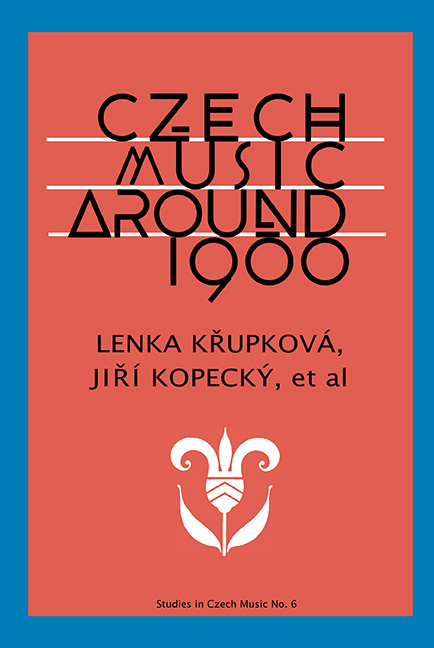Book contents
- Frontmatter
- Table of Contents
- Introductory Remarks on the Conception of This Book
- Flowers in the Graveyard, Tombstones in the Garden
- The “Other World” of Music at the Turn of the Century
- In the Footsteps of Tradition: The Spirit of Romanticism
- Czech Music at the Heart of European Music round 1900
- Novák as an Axial Figure in Czech Music
- Novák's Reception Abroad
- Josef Suk, Dvořák's Favorite Pupil
- Fibich's Path to Success in Prague's National Theater
- Tchaikovsky, Charpentier and the Formation of Janáček's Mature Operatic Style
- Josef Bohuslav Foerster's Lyrical Opera Eva and the Tradition of the French Drama lyrique
- Otakar Ostrčil and Mahler's Influence in Prague
- Folk Culture as an Outward Source of Artistic Inspiration: Vítězslav Novák the Tourist
- The Clash with Compositional Issues of European Music
- Index
- List of Illustrations
- About the Authors
- List of Sources Cited
Novák's Reception Abroad
from Czech Music at the Heart of European Music round 1900
- Frontmatter
- Table of Contents
- Introductory Remarks on the Conception of This Book
- Flowers in the Graveyard, Tombstones in the Garden
- The “Other World” of Music at the Turn of the Century
- In the Footsteps of Tradition: The Spirit of Romanticism
- Czech Music at the Heart of European Music round 1900
- Novák as an Axial Figure in Czech Music
- Novák's Reception Abroad
- Josef Suk, Dvořák's Favorite Pupil
- Fibich's Path to Success in Prague's National Theater
- Tchaikovsky, Charpentier and the Formation of Janáček's Mature Operatic Style
- Josef Bohuslav Foerster's Lyrical Opera Eva and the Tradition of the French Drama lyrique
- Otakar Ostrčil and Mahler's Influence in Prague
- Folk Culture as an Outward Source of Artistic Inspiration: Vítězslav Novák the Tourist
- The Clash with Compositional Issues of European Music
- Index
- List of Illustrations
- About the Authors
- List of Sources Cited
Summary
During the first decades of the twentieth century Vítězslav Novák was one of the best known Czech composers. His works were played by famous performers, and their premieres in the Czech lands were followed by performances abroad, mainI also thabnk youly in German-speaking areas. Novák corresponded with Eusebius Mandyczewski, archivist of the Gesellschaft der Musikfreunde (Society of Friends of Music) in Vienna, who praised some of his works in his letters and promised help in arranging for their performance in that city. In 1902 Novák received a letter from the conductor Arthur Nikisch, who was enthusiastic about his works and promised to perform them in the Leipzig Gewandhaus. Ferruccio Busoni, too, in a letter sent to Novák in 1904, expressed interest in his works and regretted that the program for his Berlin concerts for the next season was already set before he came to know them.
Performances of Novák's works were often an impulse for their publication abroad, as in the case of the Trio in D minor “quasi una ballata,” Op. 27, which was issued by Simrock shortly after its 1903 performance in Vienna. The most important event marking Novák's growing esteem and the penetration of his works on the broader foreign market was his contract with Universal Edition in Vienna. During the first decades of the new century the most prominent Czech music publishers—F. A. Urbánek and Mojmír Urbánek—were technically and financially able to publish only solo and chamber works, so Novák had no publishers at home for his large orchestral works.
In March 1910 representatives of the Umělecká beseda (Artists’ Society) invited the director of Universal Edition, Emil Hertzka, to Prague for the premiere of Novák's overture Lady Godiva. Hertzka expressed interest in Novák and proposed to the Artists’ Society's publishing house Hudební matice that it could publish this work together with Universal. However, Hudební matice lacked sufficient funds for such an enterprise. Hertzka therefore suggested that Novák himself engage in the enterprise as a shareholder. Novák turned to the Czech Academy, which promised him a subsidy for this publication. In the meantime Universal, whose primary interest was publication of works by composers from the Austro-Hungarian Empire, decided to become Novák's exclusive publisher.
- Type
- Chapter
- Information
- Czech Music around 1900 , pp. 113 - 124Publisher: Boydell & BrewerPrint publication year: 2017

